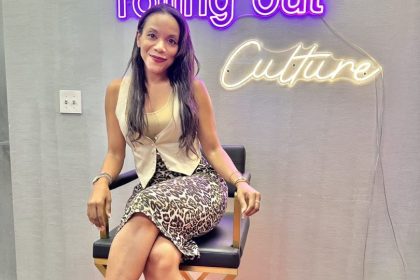
David J. Johns, a longtime advocate for Black members of the LGBTQ+ community, serves as the executive director of the National Black Justice Coalition. He previously was appointed by President Barack Obama as the first executive director of the White House Initiative on Educational Excellence for African Americans. Johns recently served on a panel as a part of the Metaverse Culture Series, hosted by Meta, which brought together LGBTQ+ leaders in a virtual reality experience to discuss how the community can feel secure and empowered in immersive spaces.
How does the LGBTQ+ community connect to the metaverse?
There are opportunities for my kinfolk to be a part of the development of not only Meta, and the metaverse rather, but web 3.0 more generally, which are decentralized ways of engaging on web-based technologies. It was phenomenal to be in a space where at least two things happen, one is you can show up anyway you choose in the metaverse. So, as someone who is often daily conscious, if not forced to be aware of the fact that I’m a 6-foot-5 Black man, my nails are always done, and my physical being means that I have to navigate spaces thinking about safety.
I have been kicked out of rideshares, which is one of the reasons we need to pass the Equality Act. There are gaps that need to be filled in civil rights protection so that I don’t have to deal with stuff like that. I can choose what I am in the metaverse and don’t have to contend with the ways in which my body is policed.
The second thing is that as someone who appreciates the privilege of mobility, existing in the metaverse tore down all of the physical, literal barriers that often prevent us from being able to hold space with each other. For me, it has been incredibly important during the most recent pandemic to physically be with each other to grieve, to celebrate joy, to strategize, and to just [be able to be] ground[ed] and put our feet in the dirt does something to us. And while the metaverse is not a supplement, it doesn’t supplant it.
Is the metaverse really a safe space?
I celebrate that, at least on the platforms that I’ve experienced thus far managed by Meta, there are thoughtful safety precautions. There’s the ability to establish a fortress, a literal barrier around you in the metaverse. It’s different than being an adult in New York where people don’t respect any of your personal boundaries; they just don’t exist. There are also ways that the community can enforce safety and security. If there are folks that are violating what feels like the established articulated norms in that space, they can be voted off of the island. There will be challenges to overcome in the future. I’m also excited for us to get to a space where we can be closer to freedom.











